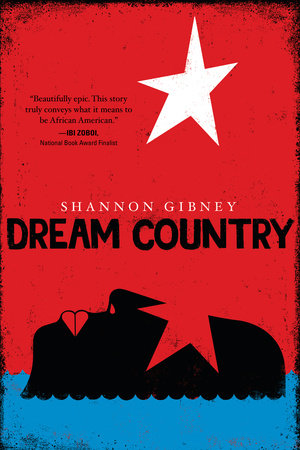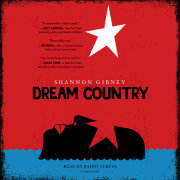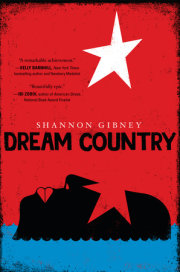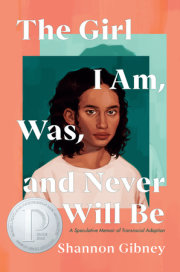***This excerpt is from an advance uncorrected copy proof***
Copyright © 2018 Shannon Gibney
For me, the rupture was the story. —Saidiya Hartman
Let an ocean divide the white man from the man of color. —Thomas Jefferson
Part I:
CHAPTER ONE
2008, Brooklyn Center, Minnesota
KOLLIE FLOMO WAS DONE. All he wanted was a moment’s peace and quiet.
“Fucking motherfuckers. No fucking culture-menh.” He echoed his mother’s words under his breath as he wiped the spit from the back of his neck. He searched the hallway for the spitter—probably the same person who’d cough shouted, “Jungle nigger.” When he saw no obvious culprit, he gave up, walked into geometry, and found his place beside Abraham. His younger sister, Angel, sat in the back of the room, her textbook already open to the appropriate chapter, her pencil resting on a blank notebook page. Kollie grimaced. It was annoying to be in the same class, but they had a tacit agreement to ignore each other. So far, she was holding up her end of the bargain, scanning the room with a bored look on her face, pretending not to see him.
“Ya hello,” he said to Abraham absently.
“Good morning, Comrade,” Abraham replied, far too brightly. “You exactly seven minutes late-oh.”
The two of them had lived three houses down from each other since the sixth grade. Some days, though, Kollie wondered if he even liked Abraham.
“Six. I had to urinate oh,” Kollie said. He took out his phone. No new texts. He threw his book on the table and then slouched down in his chair.
At the front of the room, Mrs. Walker turned around from the blackboard, startled by the noise. Kollie knew that she wouldn’t do anything. She smiled at him nervously. Kollie nodded at her, then pulled his ball cap down over his eyes, how he liked it. She faced the blackboard again and continued writing some theorem that was basically illegible to him and probably made perfect sense to Fake-Ass Angel. He didn’t know why he even bothered with this class. His daddy was buying him a basement club in Crystal, where he and his friends could spin the latest tracks for their friends and relatives, and make plenty of cash. He could almost hear Big Boi’s dope lyrics skipping over the beat like a stone across cracked sidewalk.
“Sonja say she finished with Clark now,” whispered Abraham, his pencil diligently moving across the paper.
Kollie pretended not to care, but his palms began to sweat. “Eh?”
Sonja was the flyest girl in school, and she was into both black and African guys, which was pretty rare for a black girl. Kollie had heard that her father was Kenyan.
“Definitely,” whispered Abraham.
There was something about Sonja—maybe the way she smelled like clean soap, or the way her medium-sized, perky breasts peeked out of her T-shirts, or maybe even her loud laugh—but Kollie had a huge crush on her. He had been trying to get up the nerve to talk to her for weeks, but she always seemed to be surrounded by so many people. His own girlfriend, Lovie, was always around, too.
“Yes,” said Abraham. “You should get her-oh. That big jue not be free for long now.”
“Just like that?”
Abraham looked at him sideways. “Just like that, Comrade. Why not?”
Kollie thought about it for a moment: Why not? He grimaced. For starters, Clark, Sonja’s now ex-boyfriend, had recently beat the shit out of Hassan Mohammed, who had four inches and thirty pounds on Kollie.
Why y’all jungle animals here, anyway? (Hassan wiped the blood from his nose with the back of his hand while Clark stared down at him.) Minnesota’s too cold for y’all. Can’t run around here butt naked, like, Owwwwoooo! (Accompanied by monkey-like gestures and noises.) Admit it: It’d be better to get back to that one tree y’all got in your little African village, the one that throws enough shade to cover your small little dicks. Oh yeah, I heard about that—your secret’s out. They took all the big-dicked dudes outta Africa and brought them here . . . and left all you small-dicked niggers to satisfy your poor-ass women there. Which would be why the ladies love us. (The black guys were whooping and hollering by this point.) And why they steady running from you fake-ass Negroes. (Jake Evans, the varsity quarterback, was clapping and laughing with his friends, like they were watching the Super Bowl or something. And all the teachers and lunch monitors were pretending that nothing was going on, like usual. Eventually someone handed Hassan a wad of napkins to clean himself up.)
“Let me think about it-oh,” Kollie said, as casually as he could muster.
Abraham laughed. “Think all you want-menh. Just don’t be surprised if someone else gets her while you doing all that thinking.”
Kollie pounded the controller as fast as he could, but his zombie’s bazooka refused to fire.
Sitting to his right, Gabriel laughed. “Team Plants ’bout to eat you alive, my brother.” He snickered.
“Eeh-menh! What the fuck is wrong with your console?” Kollie whined. What he really wanted to do was throw it across the room, but he didn’t want Gabriel’s parents to come down from their Bible study group. They had already threatened to throw away the PlayStation last week after a five-hour, seven-player odyssey of Dark Souls II got a little too rowdy. And before that, the boys’ gaming sessions had earned them exile in the basement. The steady stream of profanity did not go well with the Kamara family living room’s fifty-five-inch 4K OLED TV, with its clear- plastic-covered leather love seat and recliner, or with the framed poster of a white Jesus smiling down on it all.
“Gabe, you so corny, man,” Tetee said, perched atop the back of an old couch. He stuffed a handful of Doritos in his mouth.
“Yeah, but at least I don’t suck,” Gabe said, firing a round into Kollie’s staggering masses and blowing off most of their heads.
“Fuck you, asshole,” Kollie said. “The fact is, this bitch-ass game is some motherfucking bullshit.” Sometimes he marveled at how easily swear words rolled off his tongue now. When he had first come to America, every time he had even heard a swear word he had jumped. Now he couldn’t even imagine speaking English without them. They were like ketchup on a hamburger or pepper in soup—they gave everything flavor.
“Spoken like a true loser,” said Gabriel.
“Whatever, bitch.” Kollie pounded the X button on his controller until his finger hurt, but still his rocket launcher refused to reload fast enough. “Fuck!”
These words had power when he used them, like little bombs going off all around. When he was ten, he hadn’t understood that, hadn’t gotten why the black boys used them every other word. But now he was sixteen.
“Yes! Who’s a bitch now?” Gabriel threw his hands in the air. Kollie resisted the urge to punch him. He knew Gabe well enough by now to know that he was only playing, that this was part of the fun of gaming with his crew. Still, his belly felt raw. Things had been bothering him lately that he knew shouldn’t, but somehow, he couldn’t help it. He dropped the controller into his lap.
“Plants vs. Zombies, who comes up with that pussy shit? Just stupid-oh, a flower running around with a pea- shooter, trying to eliminate zombies. What kind of faggot game is that-menh? Americans can be some stupid-ass people-oh,” said Kollie.
Tetee leaned down and put a hand on his shoulder. “Relax, Comrade.”
“And then you got to be even stupider to actually buy the fucking game,” Kollie continued, undaunted. “My man, would you plead temporary insanity was what made you buy this piece of shit?”
Gabe’s suppression-fire specialist massacred the last of Kollie’s zombies, and the big red game over flashed across the screen. “I wouldn’t plead shit, Comrade My Bitch,” said Gabe. He had been in the U.S. since he was four, so it was easy to mistake him for a regular black guy. “What I would do is tell you to get used to getting your ass kicked by a damn plant.”
Tetee laughed.
Kollie’s stomach still hurt, and his fist was now screaming to connect with Gabe’s jaw. He knew that Gabe had no idea, that he had really meant nothing by it this was all part of regular gamer trash talk. But Kollie couldn’t shake the idea that it would feel so good to hit him, to hit anybody.
Tetee, who had lived next to Kollie in Red Light the year before the war came to Monrovia, squeezed his shoulder again. “Relax, Comrade. It’s just a game-menh.” Kollie sighed and closed his eyes. An image of his family and Tetee’s huddled together in a small church auditorium while rocket launchers exploded into the night flashed before his eyes, and then he pushed it aside. In- stead, he imagined himself kissing Sonja, her soft lips covering his. His breath became deeper, more regular, and he began to feel like himself again. “My man, put down the chips and play this rebel bitch already.” Kollie stood up and handed the controller to Tetee. “Motherfucker, you ’bout to get shown how plants are put down in Red Light.” Kollie was both surprised and encouraged that he could manage a smile.
Tetee laughed and moved to sit beside Gabe.
Gabe stood too, and then pulled his jeans down below his butt, exaggerating the way the black dudes wore them at Brooklyn Center. Then he started jumping around, making an AK-47 out of his hands. “Try me, bitches. Do it. Niggas call me General Saggy Pants, ’cause my Small Boys kill Big Men in fancy suit-oh,” he said. “My AK shoot your zombie dead with my black magic peas!” Gabe said now, prancing around like a pony on amphetamines. Both Kollie and Tetee collapsed in laughter on the floor.
And just like that, everything was fine again.
CHAPTER TWO
“WHAT THE HELL’S WRONG with you, Kollie? I’m only trying to help.”
The air was damp and cold the next morning, as Kollie and his sister waited for their bus to school. Angel had asked him if he needed to copy yesterday’s geometry homework, and he’d responded by putting on his headphones and pulling up his hood.
The sun was just coming up over the horizon, and languid heat might roll up behind it or maybe it would snow. For the millionth time, Kollie thought that he would never understand the weather in this country. There was no rhyme or reason to it, which was why he always opted to wear jeans and a hoodie. He could be sure to be more comfortable than uncomfortable during the day, no matter what happened.
Angel called the outfit his “uniform”—or his “armor” if she was trying to piss him off. He never bothered to tell her that if anything was armor, it was his headphones. “Here comes your purse,” Angel said as Lovie rounded the corner on the other end of the block.
“Handbag,” he said, and then he sighed. Why could Angel never quite get Liberian idioms right? Their mother called anyone, especially children, who hung around someone too much a “handbag,” which was how Angel saw Lovie.
“Whatever. Fuck you, Kollie,” Angel said, and put in her earbuds. The fact that Lovie was Kollie’s girlfriend irritated his sister so much that Kollie actually noticed. Actually Angel had introduced Lovie to Kollie, and the two girls used to be close, until Kollie and Lovie started dating.
“Good morning, Sweetie,” Lovie said as she neared the stop. She was wearing tight jeans that showed off her wide hips and substantial butt, and a bright white T-shirt with sparkles. Lip gloss and a new bobbed wig completed the look.
“Good morning-oh.” Kollie pushed down his hood and headphones and forced himself to smile at her. They had been together three months and he was tired of her, but didn’t know how to tell her. And he knew he couldn’t get away with ignoring her like he did Angel. Like the rest of his life, it seemed easier to ride it out until something better came along. Something like Sonja.
“Yeah, hello, ma,” Lovie said to his sister. Unlike Angel, Liberian English expressions—like calling all female acquaintances “ma”— came to Lovie without a second thought.
“Yeah, good morning,” Angel answered back, then deliberately looked away from her.
Lovie turned back to him. “How everything? What news? You good?”
“Yeah, fine,” Kollie said.
Lovie looked at Kollie for a second, like she was going to ask if he was okay again, and he wished more than anything he could put his headphones back on. But then she smiled and dug something out of her backpack. “Lowell said this top-of-the-line-oh.” It was a Bose Bluetooth speaker. Her older brother worked at Best Buy, and often got special deals on merchandise. Lovie had a small gap between her front teeth that he had always found endearing, especially when she smiled shyly like she was doing now. “I got it cheap-cheap,” she said. “I knew when I saw it, it was perfect for your room-oh.”
His other speakers had busted last week, probably from too much use. He had to have his music pumping whenever he was home, no matter what he was doing. It was just that simple.
“You my black diamond-oh,” he said, and he almost meant it. He had had two other girlfriends before Lovie, and none of them did half the stuff for him that she did. She cooked him both burgers and bean soup with fish and cow, helped him with his homework on occasion, and had even cleaned his room once. Lovie didn’t freak out about sex, either, and was pretty much down for whatever. She was a good church girl, showed up every Sunday with her family, and memorized line and verse, but the meaning—especially the dire warnings about the effects of fornication on the soul—seemed to go in one ear and out the other. Which Kollie knew he ought to appreciate. Lovie leaned over to give him a quick kiss on the lips, and he let her.
Angel snickered beside them. Kollie knew she thought all of this was nonsense, that Lovie was wasting her time and energy on him. Angel called herself a feminist, which as far as Kollie could tell meant that she hated men but wanted a penis. She certainly hated their father enough.
The bus rumbled in the distance. Kollie sighed at the thought of another day at school. Lovie was texting, so he put in his headphones and started pumping the P-Square. The bus stopped, Angel got on, then Lovie, then him. Lovie expected him to sit by her during the ten-minute ride to school.
“Hey, bro, wassup?” Saah said as he walked by the first front seats. He held out his hand, and Kollie slapped it.
“Yo, wassup, Comrade?” Kollie said back, dropping his headphones to his neck but leaving the P-Square playing.
“How everything, Comrade?” Mardia asked, seated next to Saah.
“Yeah, fine,” Kollie answered, taking a seat behind them, next to Lovie. Mardia and Saah lived a few blocks west of him, and played with him on the soccer team. Their mothers also frequently cooked large platters of Liberian food together for community gatherings, either at their houses or at church.
“The weekend good-oh,” Mardia said as the bus pulled away from the curb. “I don’t know why it need to end with this school shit.”
Kollie smiled wryly.
Saah smacked his friend lightly on the arm. “Man, the weekend been done for a whole day now. Today Tuesday, Mardia.”
Mardia hit back. “I know that. I just talking about how there never enough time in this country to relax-oh. No wonder the people so wack.”
Kollie shook his head. Mardia was right, of course. Everyone here worked all the time and went to school when they weren’t working. All the adults, anyway. The Liberians threw their own parties on the weekends, which started at ten and lasted until three or four in the morning, but then they had to get up a few hours later for church or work wiping old white people’s butts at the nursing home. Up ahead, the gray institutional face of Brooklyn Center High School got larger and larger in the front windshield. It looked like a prison, with its blank concrete walls and tiny windows.
“Yo, Comrade, how you doing-oh?” A teasing voice boomed from behind them.
Kollie felt his fist tighten.
“Yes, very well, Comrade. ’Cept the shit I got for lunch came out of my mother’s asshole-oh before she put it in my lunchbox,” the voice continued.
Someone snickered.
This was how it was most mornings, riding in with the black kids who sat in the very back of the bus, smacking their gum and talking shit about everyone, like they owned the whole fucking vehicle. The guys had durags covering their heads, and the sickest Nikes on their feet—Kollie had even seen a few of them with the new LeBron Soldier Xs. Don’t concern yourself with them, his mother had told him since the very first day they had seen the black Americans in the neighborhood. They are not serious, and they don’t have culture. That is why they act that way.
“Seriously, did y’all smell that rank green shit Saah brought out at lunch yesterday? I swear I saw a fish head in it. A fucking fish head, y’all! Isn’t that, like, a violation of state health laws or something?”
More laughing. One of them was almost on the floor, he was laughing so hard. The old white dude who drove the bus was watching them in his mirror, smiling.
“Nigga, you wrong for that. You just wrong.”
Saah looked from Kollie to Mardia and shook his head. It’s not worth it, is what that meant.
The bus pulled into the school parking lot, behind a row of others. Kollie felt sick. He couldn’t wait to get off.
“I’m serious, man. That shit was disgusting. Take that African shit back, ’cause we eat real food that ain’t been taken from the dumpster here. For real.”
The bus driver pulled the brakes and then opened the doors. Everyone stood up and started filing out.
Kollie closed his eyes. They have no culture-oh, he could hear his mom saying again.
Clark slapped Kollie lightly on the back of his head as he walked past him. Kollie jumped.
“Seriously, though. What the fuck is wrong with y’all? How can you eat that greasy, stank soup every day? Don’t it make you wanna vomit?” he said, turning to look straight at Kollie.
Beside him, Lovie grabbed his arm. Kollie looked back at her, and she gave him a muted smile. He knew what she was trying to do. Even though he resented it, he relaxed his fist, which had been steadily rising to his chest.
“Pussy,” Clark said as he walked away.
Copyright © 2018 by Shannon Gibney. All rights reserved. No part of this excerpt may be reproduced or reprinted without permission in writing from the publisher.







